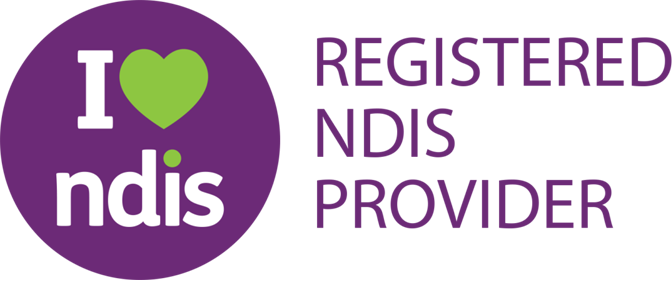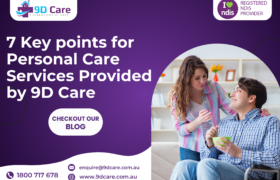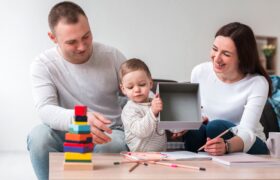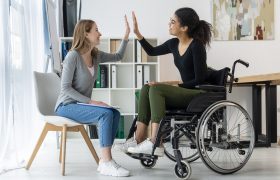The Importance of Social and Community Participation for Mental and Physical Health
For individuals with disabilities, participating in social and community activities is not just a luxury but a necessity for maintaining both mental and physical well-being. The benefits of engaging in social and community activities are numerous, and they can help improve the overall quality of life, reduce mental health issues, and foster a sense of belonging. These opportunities provide individuals with the chance to interact with others, contribute to society, and feel a sense of accomplishment. Ultimately, participation in these activities promotes independence and self-worth, which are crucial for long-term health and happiness.
Social participation can significantly enhance an individual’s mental health. When people take part in community events or activities, they are often exposed to new ideas, experiences, and people. These interactions not only help combat feelings of loneliness and isolation—common struggles for individuals with disabilities—but also encourage emotional growth and self-expression. Positive social engagement provides a platform for building friendships, strengthening support networks, and finding a sense of purpose. Connecting with others creates opportunities to share experiences, express thoughts, and find common ground, which in turn promotes emotional well-being. By interacting with others, people with disabilities can also improve their self-esteem, reduce anxiety, and combat depression. Additionally, participating in social activities helps reduce stress, foster a positive outlook, and cultivate a more optimistic approach to life’s challenges.
In addition to its mental health benefits, community participation can have a direct and powerful impact on physical health. Many community activities involve physical movement, which is essential for maintaining mobility, strength, and overall health. Whether it’s joining a local fitness group, participating in a community walk, or taking part in recreational sports, these activities provide an opportunity to stay active and improve physical fitness. Regular movement and exercise are known to boost cardiovascular health, enhance mobility, and reduce the risk of chronic conditions such as diabetes, obesity, and heart disease. Physical activity also supports joint health, flexibility, and balance, all of which are particularly important for individuals with disabilities who may face challenges related to mobility and physical functioning. The more active a person is, the more likely they are to experience improved overall health, increased energy levels, and a better quality of life.
Moreover, social participation often leads to the development of important life skills. By engaging in community-based activities or volunteer opportunities, individuals may learn how to navigate social interactions, build problem-solving skills, or develop a sense of responsibility. These valuable life skills not only improve one’s social skills but also increase self-sufficiency, confidence, and independence. For example, volunteering at local events or helping out with community projects can provide individuals with the opportunity to build new abilities, learn teamwork, and practice leadership. These activities help enhance their sense of purpose, boost self-confidence, and encourage personal growth.
Importantly, community participation helps to break down the barriers that individuals with disabilities often face in terms of societal inclusion. When individuals are encouraged to take part in social activities, they are shown that they have value, that their contributions matter, and that they are not defined by their disabilities. By being included in community activities, people with disabilities are given the opportunity to challenge societal perceptions and misconceptions about disability. This inclusivity strengthens the fabric of society, allowing people to feel connected to a greater whole, while promoting mutual respect, understanding, and compassion. When communities actively embrace individuals with disabilities, it creates a more inclusive, welcoming, and supportive environment for all, ensuring that everyone, regardless of ability, can thrive.
For families and caregivers, knowing that their loved ones are involved in the community can bring peace of mind. Participation fosters an environment where individuals are respected and treated as equal members of society, promoting both independence and social integration. Families can feel reassured knowing that their loved ones are receiving the emotional, social, and physical benefits of community involvement. This sense of security also eases the burden on caregivers, as it provides individuals with disabilities with the opportunity to build relationships and engage in activities that encourage autonomy, self-confidence, and well-being.
Overall, the benefits of social and community participation for mental and physical health cannot be overstated. By engaging in community activities, individuals with disabilities can maintain their mental well-being, stay physically healthy, and build meaningful relationships, all of which contribute to a higher quality of life. Participation in social and community activities empowers individuals with disabilities to live fuller, more independent lives, while strengthening the fabric of society. Whether through increased physical activity, the development of new skills, or simply having the opportunity to engage with others, the positive impacts of social and community participation extend far beyond the immediate benefits, fostering long-term well-being, self-worth, and social inclusion for all involved.
At 9D Care believes in providing unparalleled personal care through their comprehensive and innovative services. And so today, we have.
It can be tricky to comprehend how funding for overnight care and support under the NDIS works. Let’s examine the.
Any condition that makes it more difficult for a person to engage in specific activities or enjoy equal access within.
A fulfilled life requires good mental health. A healthy mind is as essential as a healthy body. Our mind encompasses.
Despite all the best efforts at prevention, children may be born with or develop the following disabilities in early childhood,.
With the annual budget release, there has been a lot of chatter surrounding the NDIS and the allocated funding for.
Our team can come to you to discuss face to face your needs and discuss how we can best support you to achieve your goals. Contact us today to arrange an appointment.








